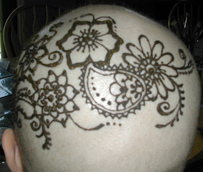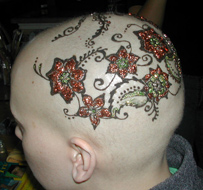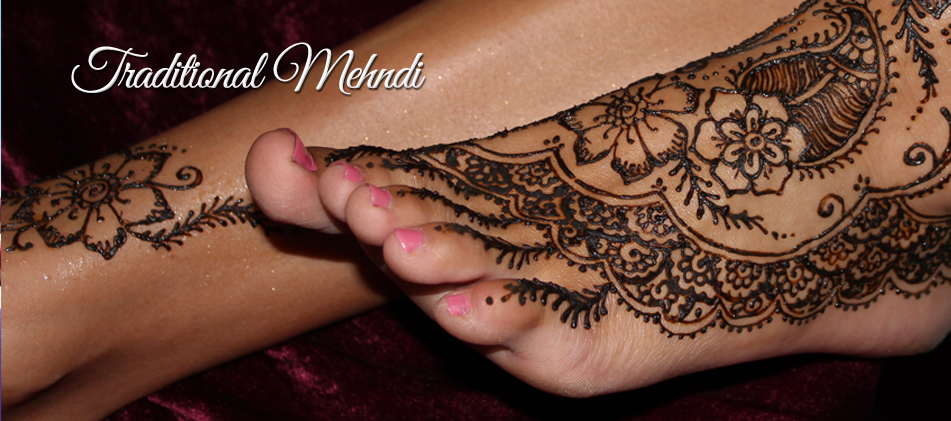Traditional Mehndi - Henna
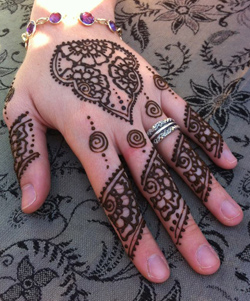
Unlike real tattoos, henna tattoos are definitely temporary and when applied, you will feel no pain at all. The result you will get is similar to a real, permanent, and painful tattoo, but it will fade as time goes by.
Henna tattoos are also popular not only during summer to show off but also at parties. Some parties have henna art booths where an artist creates skin art for guests. Henna tattoo artists at parties or events have an album of sample designs you can browse. These artists are very talented and the process is safe and fun. There are a lot of designs for henna tattoos you can find online, or if you have an artistic friend, request a personalized design to make the tattoo fit your personality.
Medicinal Properties
Henna is considered an herb and has long been known to have healing qualities. It is used topically and is usually not ingested or inhaled. In ancient times it was applied to the skin surface for such ailments as headaches, stomach pains, burns (including sunburns), open wounds, as a fever reducer, athlete's foot, and even the prevention of hair loss. It is also a sunblock and has been used on the noses of animals to prevent sunburn. Another use of henna would be to apply it to goatskin bags after they have been salt-cured. It "insect-proofs" or "moth-proofs" the bags by making the skin poisoned or inedible.
Traditions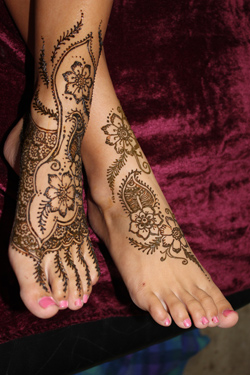
Henna is traditionally used for special occasions like holidays, birthdays, and weddings in Africa, Pakistan, India, and the Middle East. The most popular of the traditions is the Mehndi (henna) Night where the bride, her family, relatives, and friends get together to celebrate the wedding to come. The night is filled with games, music, and dance performances that may have been rehearsed for months prior to the event by those closest to the bride while the bride gets extensive henna patterns done on her hands and feet that go to her elbows and sometimes, knees. The bridal patterns can take hours and are often done by multiple henna artists. The guests will usually receive small designs (tattoos) on the backs of their hands as well.
Today, brides prefer to have their henna done prior to the mehndi night so that they can enjoy the festivities and also have a deeper stain by the wedding day.
Tradition holds that for as long as the henna stain appears on the bride, she doesn't have to do any housework! Also, the darker the stain the better the marriage and the better the mother-in-law will be! So you can imagine why the bride would want the stain to come out dark and last as long as possible!
Henna is an ancient form of blessings and goodwill which makes it a perfect way to bless a child to come. It's also a wonderful treat to be pampered a few weeks before the delivery with gorgeous belly designs! Meditative for the mom-to-be and fun and entertaining for the guests!
Contact Us Today!
Henna Crowns
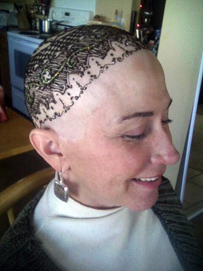
As Chemo-patients experience hair loss during their fight against Cancer, they begin to hide from society and feel uncomfortable in their own skin. Some disguise their condition by wearing a wig and others simply stop socializing altogether.
In those tough times, they need to get a Henna crown, which is a bold statement made by a masterpiece hand drawn on their scalp by a henna artist to show off with pride and feel beautiful again. Henna has magical healing powers for cancer patients in forms of crowns or patterns drawn on any other parts of the body to celebrate how one looks, full of confidence and strength!
**Offering 50% Discount on Henna Crowns for Cancer Patients now!!!**
